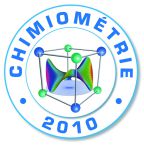


Module 4: DOE (screening, response surface & mixing)
Training Program
The implementation of Design of Experiments based on a methodological approach to experimentation. Indeed, it is an a priori methodology (set of methods and modes of reasoning) for every operator is to allow optimizing the effectiveness of its experimental research. To do this, it will help him better express his problem and propose experimental strategies (sequences of experiences over time) based on the goals he has set himself and the means at his disposal.
Using the technique of experimental design promotes a very rigorous approach to the formulation of the problem until the development of the optimal experimental strategy. This choice of experiments to be performed depends on the objectives and aims to establish a causal relationship between certain parameters of the phenomenon (factors) which are supposed to influence the behavior of the phenomenon, and other parameters (the responses) that characterised the result of the phenomenon.
Goals can be:
- Quickly isolate the influential factors (screening), among many potentially influential factors,
- A more quantitative study of the effect of factors in considering the effects of interaction between factors,
- Develop descriptive models or forecasting of the phenomena studied (quantitative study of responses) to perform an optimization, a compromise between several responses,
- Develop a formulation, with or without constraint on the components of the formula.
At these various objectives are different types of experimental designs for which we will explain, in summary, with easily affordable way, the useful and necessary implementation to deploy this methodology to acquire experimental information.






CHIMIOMETRIE 2010 Symposium

2010 Challenge Winners...


Vous êtes le ième visiteurs
Dernière mise à jour : 07/10/2016